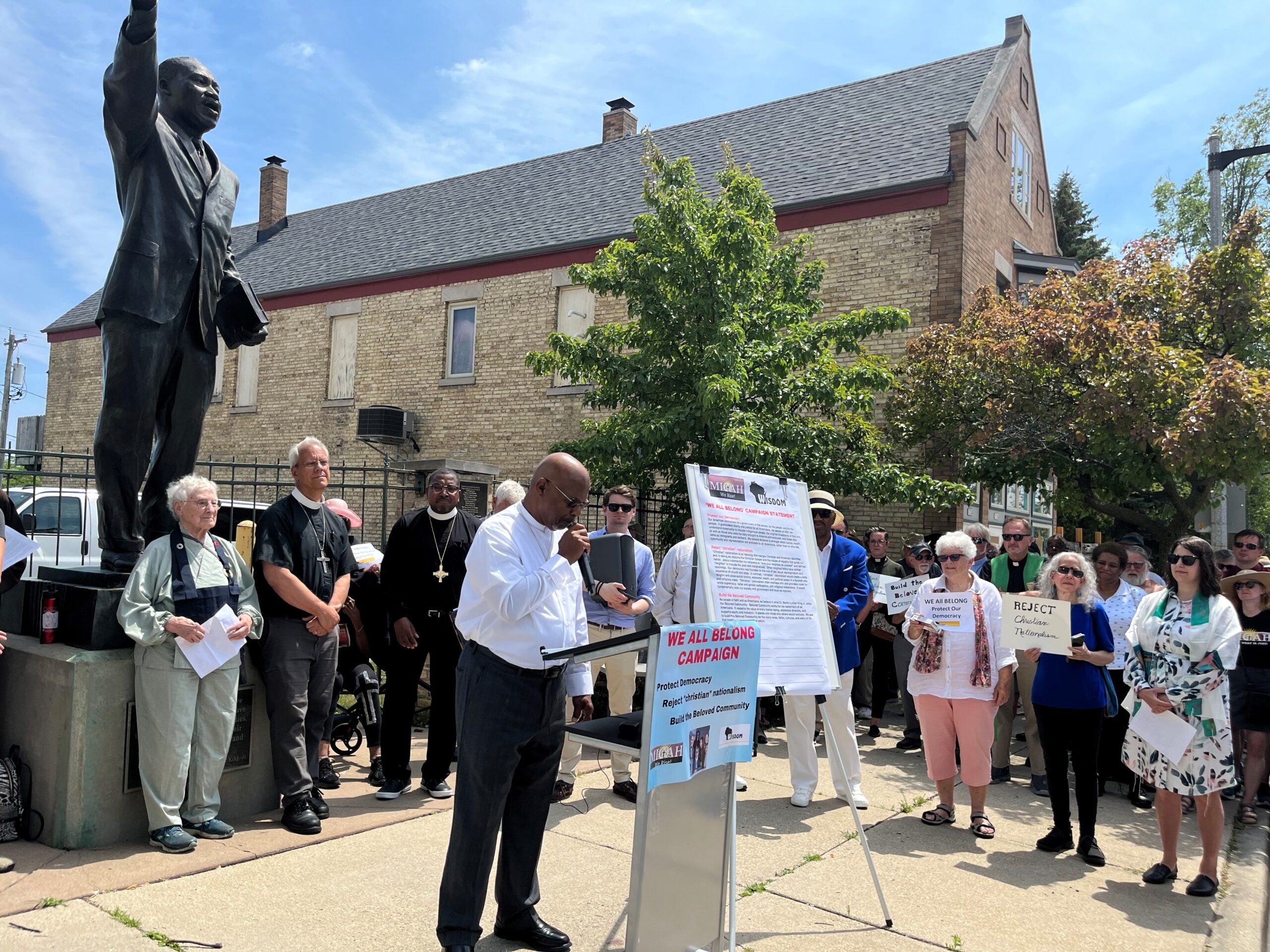As Republicans on Capitol Hill plan to repeal Obamacare, Wisconsin legislators are pushing to ensure that people who gained coverage when the law went into effect still have insurance. Recent research shows that more than 9 out of 10 members of Congress identify as Christian and that has remained steady for decades. We look at what significance that might have given the changing demographics of the US population. For Food Friday, we take a look at how wonderfully versatile chicken is, and how to do even more with the popular poultry.
Featured in this Show
-
Legislators, Health Execs Hope Wisconsin Isn't Disadvantaged After Obamacare Repeal
Unlike some other states in the country, Wisconsin didn’t fully implement the Affordable Care Act, or Obamacare. As Republicans pursue their long-time goal to repeal and replace the healthcare law, Wisconsin Gov. Scott Walker and healthcare executives are pushing to ensure that Wisconsin isn’t disadvantaged compared with states that fully embraced Obamacare.
-
Congress Is More Christian Than The People They Represent
A recent study by the Pew Research Center as part of the Faith on the Hill project shows that while Congress has remained predominantly Christian, the general population’s religious affiliation, or lack of faith, is changing swiftly. We discuss whether it matters that members of Congress and their constituents are increasingly unlikely to share the same faith beliefs.
-
Congress Continues To Be More Christian Than General Population
The landscape of religion in America is an ever-changing story. Today, Americans are less likely to identify with a specific religion than ever before in the country’s history.
However, the religious affiliations among members of Congress remain almost entirely static.
According to an annual report published by the Pew Research Center, 91 percent of the members of the 115th Congress are self-identified Christians. That’s a figure that has gone relatively unchanged since the data collection began in the early 1960s.
While Christians in America are over-represented in Congress — with 71 percent of adults in the U.S. identifying as Christian — the religious “nones” are the most largely underrepresented group, said Gregory Smith, associate director of research at Pew Research Center.
Twenty-three percent of the general population say they are unaffiliated with any particular religion, and yet just one federal lawmaker, or 0.2 percent of Congress, says the same.
This “unaffiliated” group accounts for a wide range of beliefs, Smith noted, ranging from people who do not believe in God at all, to people who are unsure or people who see themselves as more “spiritual” than religious.
Smith said generational replacement has been a large contributor to the growth of the religious nones in the general public, so it’s possible Congress may eventually reflect this shift as well. But, Smith said, that’s impossible to predict.
“Religious nones are much more numerous among young adults than they are among older people,” he said. “And of course we also know that younger adults turn out to vote at lower rates and they may also seek elected office at lower rates.
“It could be that as millennials get older and perhaps begin to vote at higher rates and perhaps begin to seek elected office on their own that some of these patterns may begin to change,” said Smith.
However, there’s also research to prove having religious ties is actually a politically savvy move, Smith said. Pew has found Americans are more comfortable electing candidates who identify as a person of faith.
And while a candidate identifying with specific denominations can make a difference for some voters, Smith said just “believing in something seems to count for a lot.”
Wisconsin’s congressional delegation is slightly less religious than Congress as a whole. Eighty percent of Wisconsin’s delegation identifies as Christian.
Democratic Sen. Tammy Baldwin and Rep. Mark Pocan, D-Madison, both identified as “don’t know/refused,” according to Pew.
The rest of delegation breaks down as follows:
Four Catholics: Rep. Paul Ryan, R-Janesville; Rep. Jim Sensenbrenner, R-Menomonee Falls; Rep. Sean Duffy, R-Wausau; and Rep. Mike Gallagher, R-Green Bay.
Three Lutherans: Republican Sen. Ron Johnson; Rep. Ron Kind, D-La Crosse; and Rep. Glenn Grothman, R-Glenbeulah
One Baptist: Rep. Gwen Moore, D-Milwaukee.
So, Smith said, the big question a lot of people want answered is: How do these religious ties impact the way members of Congress vote?
The answer is murky at best, he said.
Since Christians constitute the big majority in both the Republican and the Democratic caucuses on Capitol Hill, Smith said it’s “hard to disentangle how much religion might drive the way that people vote as opposed to their partisanship.”
Of the remaining 9 percent of Congress, 5.6 percent identified as Jewish, 1.9 percent identified as “don’t know/refused,” 0.6 percent identified as Buddhist and 0.4 percent identified as Muslim.
There is one member of Congress who identifies as Unitarian Universalist. Then there is Rep. Kyrsten Sinema, a Democrat from Arizona. Sinema is the singular member among the 535 members of Congress who says her religion is “unaffiliated,” and while she stands alone in the Capitol, 23 percent of the adults nationwide – the religious “nones” – share that label.
-
Food Friday: All Things Chicken
Chicken. It’s one of the most affordable proteins on the market, and the cooking combinations are endless. A guest cookbook author shares some of her favorite chicken recipes, along with her tips for making the perfect fried chicken.
Episode Credits
- Rob Ferrett Host
- Veronica Rueckert Host
- Haleema Shah Producer
- Dean Knetter Producer
- Chris Malina Producer
- Jason Stein Guest
- Greg Smith Guest
- Cynthia Graubart Guest
Wisconsin Public Radio, © Copyright 2025, Board of Regents of the University of Wisconsin System and Wisconsin Educational Communications Board.

